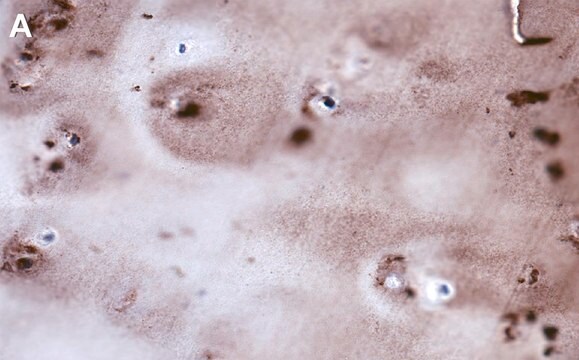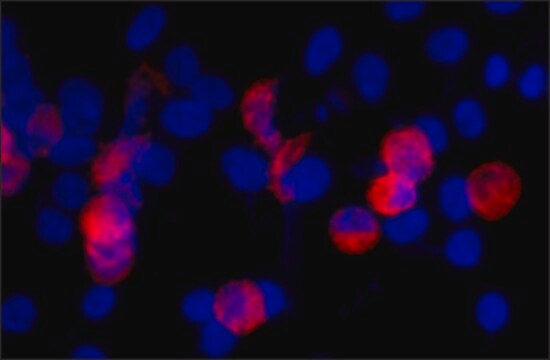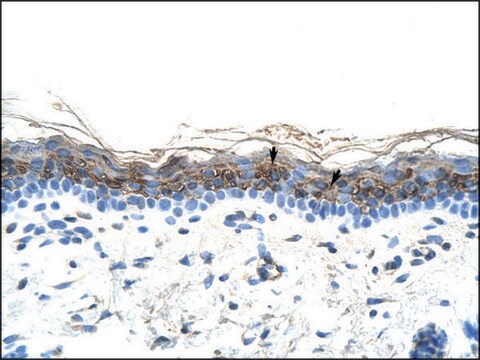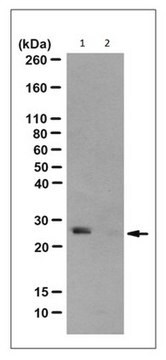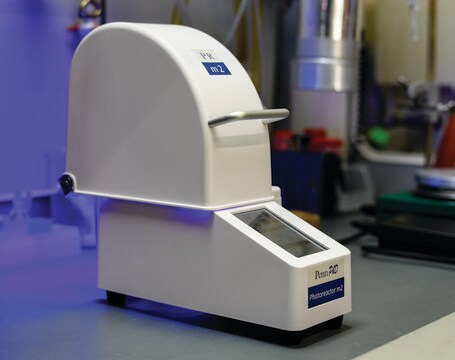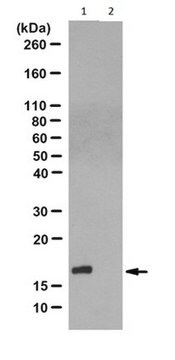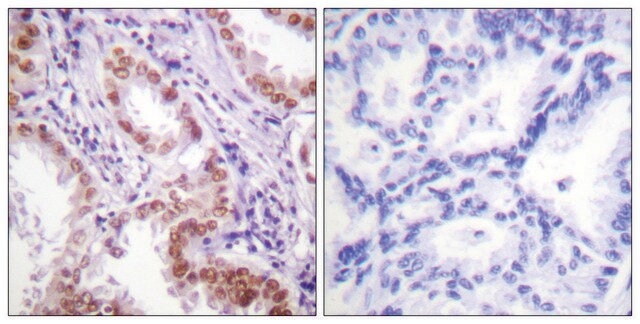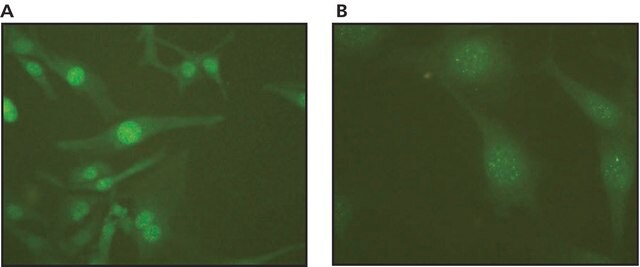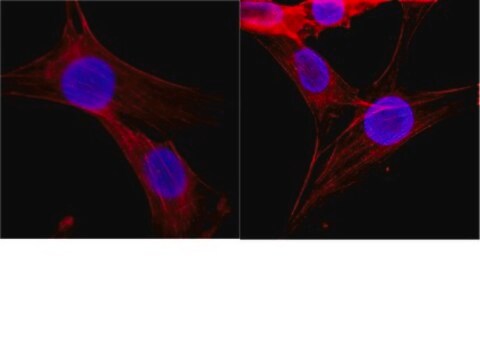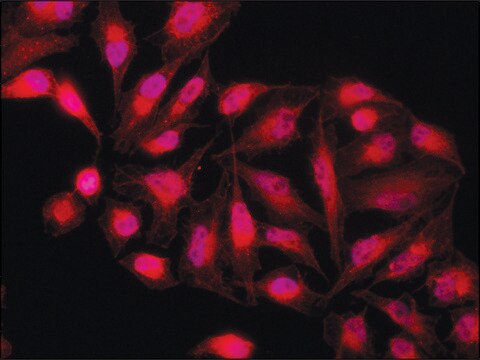MABE920
Anti-Mi-2β Antibody, clone 17H11
clone 17H11, from mouse, purified by affinity chromatography
Synonym(s):
Chromodomain-helicase-DNA-binding protein 4, CHD-4, ATP-dependent helicase CHD4, Mi-2 autoantigen 218 kDa protein, Mi2-beta, Mi-2b
About This Item
Recommended Products
biological source
mouse
Quality Level
antibody form
purified immunoglobulin
antibody product type
primary antibodies
clone
17H11, monoclonal
purified by
affinity chromatography
species reactivity
human
technique(s)
ChIP: suitable (ChIP-seq)
western blot: suitable
isotype
IgG2bκ
NCBI accession no.
UniProt accession no.
shipped in
wet ice
target post-translational modification
unmodified
Gene Information
human ... CHD4(1108)
General description
Specificity
Immunogen
Application
ChIP-seq Analysis: A representative lot of this antibody as part of a monoclonal antibody cocktail was used for ChIP-seq. See Zhang et al., 2012 for details.
Epigenetics & Nuclear Function
Epigenetics & Nuclear Function
Chromatin Biology
Histone Modifying Proteins
Quality
Western Blotting Analysis: A 1 µg/mL dilution of this antibody detected Mi-2β (CHD-4) in a Jurkat cell lysate.
Target description
Physical form
Storage and Stability
Other Notes
Disclaimer
Not finding the right product?
Try our Product Selector Tool.
Storage Class Code
12 - Non Combustible Liquids
WGK
WGK 1
Flash Point(F)
Not applicable
Flash Point(C)
Not applicable
Certificates of Analysis (COA)
Search for Certificates of Analysis (COA) by entering the products Lot/Batch Number. Lot and Batch Numbers can be found on a product’s label following the words ‘Lot’ or ‘Batch’.
Already Own This Product?
Find documentation for the products that you have recently purchased in the Document Library.
Our team of scientists has experience in all areas of research including Life Science, Material Science, Chemical Synthesis, Chromatography, Analytical and many others.
Contact Technical Service